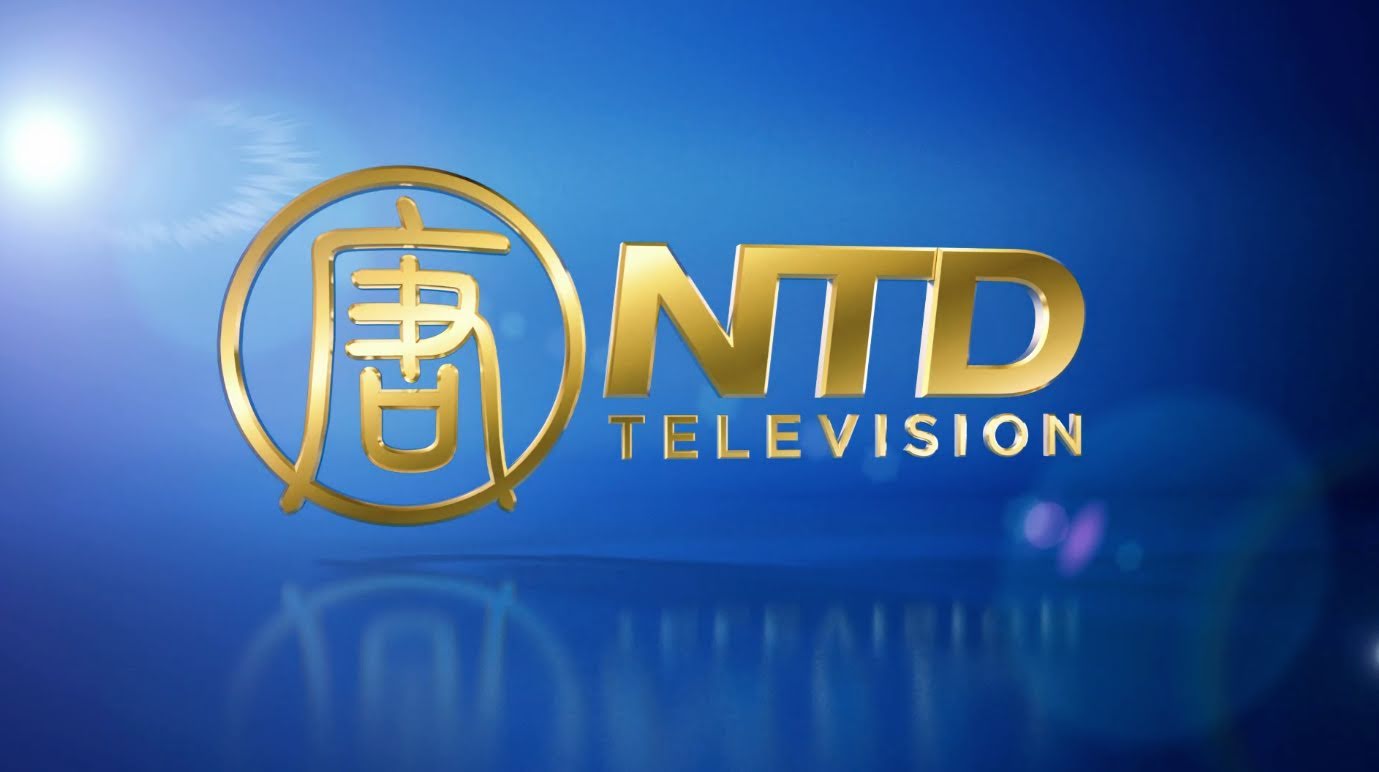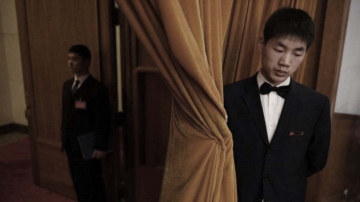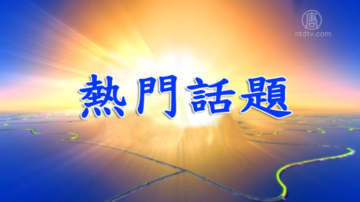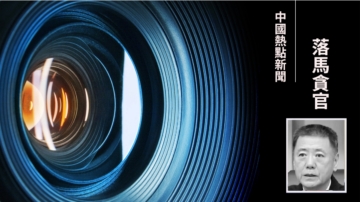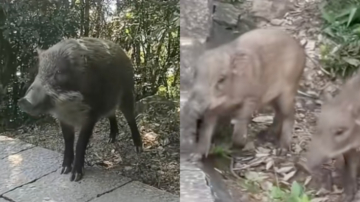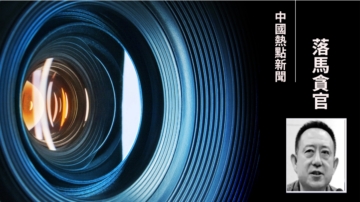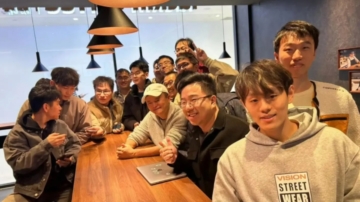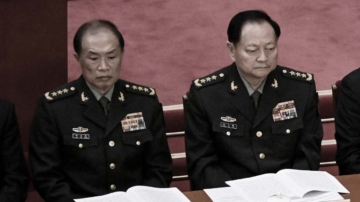【新唐人2012年1月31日讯】今年的龙年被外界普遍认为是中共特别的“政治年”,因为中共为了保证十八大政权交接顺利,外界观察,经济也将会服从于政治。有媒体发表社论,分析了中共在龙年所面临的政治难题和经济难题。评论认为,中共龙年的难题是内政。
《世界新闻网》27号的社论指出:中国的经济从来就与政治密不可分,今年外部有“中国崩溃论”,内部则是“硬着陆”或“软着陆”到来的老调。
文章分析,龙年的中国,经济进入了一个新的周期,这个周期有三个基本态势,一是刺激性扩张政策全面退出、经济回归阶段;一是持续的通货膨胀压力减退,但内部 物价仍在高位,外部仍有输入型通膨的风险;三是经济成长减速,因实体经济受困而有失速的压力。因此,今年是中国经济关键的一年,而关键中的关键,是看经济能否实现“软着陆”。
社论还指出,今年因内外经济变局,中共面临各方面问题风险加大的危机,包括经济失速的风险、通胀再袭的风险、金融危机的风险、社会矛盾的风险等等,特别是在金融领域,防风险实际已成头等大事。
而由于宏观调控的变化,经济转型的压力,在财税体制,在房地产、收入分配等领域的压力,极有可能导致矛盾的加剧和爆发。
至于政治周期上,社论认为,中共目前面临最大的难度,是国际间选举的变局。除台湾大选完成,与中国关系密切的美国、俄罗斯等大国也有大选,有的会对中共的政治周期产生直接影响。
美籍华人评论作家曹长青在《自由亚洲电台》评论表示,今年全世界一连串的国家领导人选举,都更凸显中国的落伍。没有选举,没有新闻自由,人为决定国家领导人。这种现状能长久的持续下去吗?
香港《动向》杂志主编张伟国向《新唐人》表示,中国的一党专制,除非像“辛亥革命”或“中东茉莉花革命”,是从外部改变政局,否则, 中共内部不会主动改变。
张伟国:“实质上,权贵资本主义被利益集团捆绑,或者它与世界主流文明为敌,这样一个基本的态势不会变,主观上来讲,共产党自己不会变,要变也是客观、外界的压力,迫使它不得不变。”
中国没有选举,早就钦定了习近平接班。曹长青认为,习近平上台后,一般估计会延续胡锦涛的政策,但从习近平的言行来看,他可能会更倾向毛泽东时代的那种意识形态,会更加左倾。但这样做法将会加剧中国社会的矛盾,增加政局的不稳定性,激发中国社会重大变迁的提前到来。
张伟国:“包括现在权贵资本主义在中国的发展,整个人类文明的一些基本准则,包括一些人权的异宪,都受到挑战。”
此外,《世界新闻网》26号发表的另一篇社论指出,中共政府在龙年来临之际,面临国内乃至海外华人社区的质疑和批评,指中共的外交政策太过软弱,太过逢迎,在南海争端上不敢“亮剑”,在日本问题上更是缩手缩脚,甚至要邀请皇太子访华,网民的批判声越来越大,给中共政府的决策带来重大压力。
因此,社论认为,中共今天的主要问题,不是外交,而是内政。中共的内部矛盾,尤其是贪污腐败、法制不彰、社会不公、分配不均,都找不到解决问题的出路。于是,就造成了人才外流、金钱外流的倾向。而一个很讽刺的现象是,一方面,中共当局和民众对美国和西方国家的批评加剧,另一方面,移民、留学美国和西方;资产 转移到美国和西方的现象,却方兴未艾。
新唐人记者周玉林、周平、萧宇采访报导。
CCP’s Challenges In 2012
The 2012 Chinese Year of Dragon is believed to be a special
"political year" for the Chinese Communist Party(CCP).
As the CCP tries to ensure a smooth hand over of its political
power at the incoming 18th Congress.
Outside comments believe the CCP will place the economy
at a lower priority to politics.
Media analyzed the difficulties in politics and economy that
the CCP regime faces in 2012.
The reviews say the CCP’s challenge in 2012 is
internal affairs.
On Jan 27, an editorial in Worldjournal.com said that China's
economy has always been inseparable to politics.
In 2012, the regime faces “China Collapse" talk from outside,
and the tune of "hard landing" or "soft landing" from within.
The article analyzed that China’s economy has entered
a new cycle this year, presenting three basic trends.
1. economic regression and withdrawal of expanding
stimulus policy.
2. cooling of continual inflation, yet domestic prices remain
high, and a risk of imported inflation;
3.economic slowdown, and stall pressure that may stem
from in-trouble entity economy.
2012 is deemed a critical year for China's economy.
The crux is whether the economy will achieve a "soft landing".
The editorial noted that due to economic changes at home
and abroad, the CCP regime faces increased risks in 2012.
The crises involve various aspects, including economic stall,
inflation comeback, financial crisis, social conflicts, etc.
Risk prevention is a top priority, especially in the
financial sector.
Factors that will likely lead to outbreaks or escalation of
conflicts may come from many areas.
Changes of macro-control policies, pressures from economic
restructuring, real estate, and from income distribution.
The biggest political issue that the CCP currently faces is
unexpected changes on worldwide elections, the editorial said.
After the finish of Taiwan's presidential election, the U.S.,
Russia and other major countries will hold individual elections.
The elections of these nations, who hold close ties with China,
are expected to directly impact the CCP’s political cycle.
Cao Changqing, Chinese-American writer and critic, reviewed
the issue via Radio Free Asia.
A series of national elections will be held in the world in 2012,
highlighting China's outdated system, Cao said.
No elections, no freedom of press, man-induced decisions
to produce head of state.
Cao asked, will the status quo continue to last much longer?
Zhang Weiguo, Chief Editor of Hong Kong’s Trend magazine,
thinks only changes outside can change the political status.
CCP dictatorship can only be changed in approaches like
1911 Chinese Revolution or Middle East Jasmine revolution.
The CCP will not proactively change from within.
Zhang Weiguo: "In essence, crony capitalism is tied by
interest groups.
It remains hostile to global mainstream civilization.
I think such a basic situation won’t change.
Subjectively speaking, the CCP itself won’t change.
If it changed, that would be under pressures from outside,
forcing it to make an unwilling change."
China has not yet held elections, Xi Jinping was anointed
as CCP Presidential successor.
Cao Changqing expected Xi will follow Hu Jintao’s policy.
Yet Xi’s words and deeds reflect Maoist ideology.
If Xi were more Leftist inclined, that would aggravate China’s
social conflicts and increased political instability.
Major changes in Chinese society might be expected to
arrive earlier.
Zhang Weiguo: "The crony capitalism existing in China,
some basic human civilization norms, are all being challenged."
On Jan 26, another editorial on Worldjournal.com said that
the CCP faced questions and criticism at home and abroad.
On the eve of Chinese New Year, the CCP regime was
accused of too-weak and too-flattery foreign policy.
And not dare to fight it out over the South China Sea dispute.
The public criticized the regime’s over-timid ness on
China-Japan territory issues.
It even invited Japan Crown Prince to visit China.
Growing netizens’ criticism has brought great pressure
on the CCP regime’s decision.
In conclusion, the editorial said CCP’s current leading
question is not foreign policy, but civil affairs.
The CCP faces irresolvable internal contradictions.
Especially corruption, the legal system failing to work,
social injustice, unequal distribution, and the like.
In this case, there is a trend of intellectuals moving abroad,
as well as money and assets being transferred abroad.
Ironically, criticism from the CCP regime and the public is
increasing.
NTD reporters Zhou Yulin, Zhou Ping and Xiao Yu
《世界新闻网》27号的社论指出:中国的经济从来就与政治密不可分,今年外部有“中国崩溃论”,内部则是“硬着陆”或“软着陆”到来的老调。
文章分析,龙年的中国,经济进入了一个新的周期,这个周期有三个基本态势,一是刺激性扩张政策全面退出、经济回归阶段;一是持续的通货膨胀压力减退,但内部 物价仍在高位,外部仍有输入型通膨的风险;三是经济成长减速,因实体经济受困而有失速的压力。因此,今年是中国经济关键的一年,而关键中的关键,是看经济能否实现“软着陆”。
社论还指出,今年因内外经济变局,中共面临各方面问题风险加大的危机,包括经济失速的风险、通胀再袭的风险、金融危机的风险、社会矛盾的风险等等,特别是在金融领域,防风险实际已成头等大事。
而由于宏观调控的变化,经济转型的压力,在财税体制,在房地产、收入分配等领域的压力,极有可能导致矛盾的加剧和爆发。
至于政治周期上,社论认为,中共目前面临最大的难度,是国际间选举的变局。除台湾大选完成,与中国关系密切的美国、俄罗斯等大国也有大选,有的会对中共的政治周期产生直接影响。
美籍华人评论作家曹长青在《自由亚洲电台》评论表示,今年全世界一连串的国家领导人选举,都更凸显中国的落伍。没有选举,没有新闻自由,人为决定国家领导人。这种现状能长久的持续下去吗?
香港《动向》杂志主编张伟国向《新唐人》表示,中国的一党专制,除非像“辛亥革命”或“中东茉莉花革命”,是从外部改变政局,否则, 中共内部不会主动改变。
张伟国:“实质上,权贵资本主义被利益集团捆绑,或者它与世界主流文明为敌,这样一个基本的态势不会变,主观上来讲,共产党自己不会变,要变也是客观、外界的压力,迫使它不得不变。”
中国没有选举,早就钦定了习近平接班。曹长青认为,习近平上台后,一般估计会延续胡锦涛的政策,但从习近平的言行来看,他可能会更倾向毛泽东时代的那种意识形态,会更加左倾。但这样做法将会加剧中国社会的矛盾,增加政局的不稳定性,激发中国社会重大变迁的提前到来。
张伟国:“包括现在权贵资本主义在中国的发展,整个人类文明的一些基本准则,包括一些人权的异宪,都受到挑战。”
此外,《世界新闻网》26号发表的另一篇社论指出,中共政府在龙年来临之际,面临国内乃至海外华人社区的质疑和批评,指中共的外交政策太过软弱,太过逢迎,在南海争端上不敢“亮剑”,在日本问题上更是缩手缩脚,甚至要邀请皇太子访华,网民的批判声越来越大,给中共政府的决策带来重大压力。
因此,社论认为,中共今天的主要问题,不是外交,而是内政。中共的内部矛盾,尤其是贪污腐败、法制不彰、社会不公、分配不均,都找不到解决问题的出路。于是,就造成了人才外流、金钱外流的倾向。而一个很讽刺的现象是,一方面,中共当局和民众对美国和西方国家的批评加剧,另一方面,移民、留学美国和西方;资产 转移到美国和西方的现象,却方兴未艾。
新唐人记者周玉林、周平、萧宇采访报导。
CCP’s Challenges In 2012
The 2012 Chinese Year of Dragon is believed to be a special
"political year" for the Chinese Communist Party(CCP).
As the CCP tries to ensure a smooth hand over of its political
power at the incoming 18th Congress.
Outside comments believe the CCP will place the economy
at a lower priority to politics.
Media analyzed the difficulties in politics and economy that
the CCP regime faces in 2012.
The reviews say the CCP’s challenge in 2012 is
internal affairs.
On Jan 27, an editorial in Worldjournal.com said that China's
economy has always been inseparable to politics.
In 2012, the regime faces “China Collapse" talk from outside,
and the tune of "hard landing" or "soft landing" from within.
The article analyzed that China’s economy has entered
a new cycle this year, presenting three basic trends.
1. economic regression and withdrawal of expanding
stimulus policy.
2. cooling of continual inflation, yet domestic prices remain
high, and a risk of imported inflation;
3.economic slowdown, and stall pressure that may stem
from in-trouble entity economy.
2012 is deemed a critical year for China's economy.
The crux is whether the economy will achieve a "soft landing".
The editorial noted that due to economic changes at home
and abroad, the CCP regime faces increased risks in 2012.
The crises involve various aspects, including economic stall,
inflation comeback, financial crisis, social conflicts, etc.
Risk prevention is a top priority, especially in the
financial sector.
Factors that will likely lead to outbreaks or escalation of
conflicts may come from many areas.
Changes of macro-control policies, pressures from economic
restructuring, real estate, and from income distribution.
The biggest political issue that the CCP currently faces is
unexpected changes on worldwide elections, the editorial said.
After the finish of Taiwan's presidential election, the U.S.,
Russia and other major countries will hold individual elections.
The elections of these nations, who hold close ties with China,
are expected to directly impact the CCP’s political cycle.
Cao Changqing, Chinese-American writer and critic, reviewed
the issue via Radio Free Asia.
A series of national elections will be held in the world in 2012,
highlighting China's outdated system, Cao said.
No elections, no freedom of press, man-induced decisions
to produce head of state.
Cao asked, will the status quo continue to last much longer?
Zhang Weiguo, Chief Editor of Hong Kong’s Trend magazine,
thinks only changes outside can change the political status.
CCP dictatorship can only be changed in approaches like
1911 Chinese Revolution or Middle East Jasmine revolution.
The CCP will not proactively change from within.
Zhang Weiguo: "In essence, crony capitalism is tied by
interest groups.
It remains hostile to global mainstream civilization.
I think such a basic situation won’t change.
Subjectively speaking, the CCP itself won’t change.
If it changed, that would be under pressures from outside,
forcing it to make an unwilling change."
China has not yet held elections, Xi Jinping was anointed
as CCP Presidential successor.
Cao Changqing expected Xi will follow Hu Jintao’s policy.
Yet Xi’s words and deeds reflect Maoist ideology.
If Xi were more Leftist inclined, that would aggravate China’s
social conflicts and increased political instability.
Major changes in Chinese society might be expected to
arrive earlier.
Zhang Weiguo: "The crony capitalism existing in China,
some basic human civilization norms, are all being challenged."
On Jan 26, another editorial on Worldjournal.com said that
the CCP faced questions and criticism at home and abroad.
On the eve of Chinese New Year, the CCP regime was
accused of too-weak and too-flattery foreign policy.
And not dare to fight it out over the South China Sea dispute.
The public criticized the regime’s over-timid ness on
China-Japan territory issues.
It even invited Japan Crown Prince to visit China.
Growing netizens’ criticism has brought great pressure
on the CCP regime’s decision.
In conclusion, the editorial said CCP’s current leading
question is not foreign policy, but civil affairs.
The CCP faces irresolvable internal contradictions.
Especially corruption, the legal system failing to work,
social injustice, unequal distribution, and the like.
In this case, there is a trend of intellectuals moving abroad,
as well as money and assets being transferred abroad.
Ironically, criticism from the CCP regime and the public is
increasing.
NTD reporters Zhou Yulin, Zhou Ping and Xiao Yu

